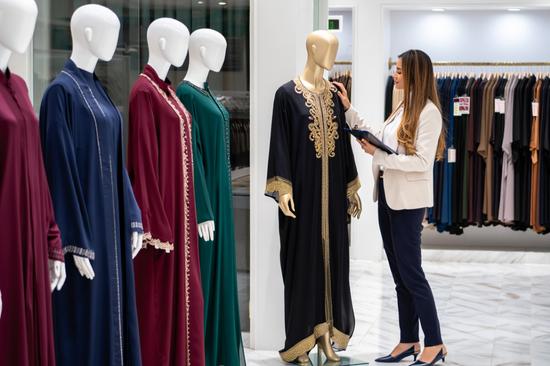-
Close
-
Categories
-
My Bag
-
My Wishlist
-
My Viewlist
-
Login / Reg
Country Language and Currency


Get a ready-made website stocked with thousands of Abayas & Hijabs. No coding, no inventory, no hassle — just focus on your brand and start selling instantly!
Published on November 22, 2025

The abaya market has grown rapidly over the past decade, driven by increasing demand for modest fashion, modern styling, and premium-quality fabrics. For retailers and resellers,
present a powerful opportunity to expand product offerings, increase profits, and attract new customers. But to make the most out of your investment, you need to buy smart. Choosing the right suppliers, understanding fabric types, evaluating pricing, and knowing what sells best can help you build a strong, profitable abaya business.
This detailed guide offers smart buying tips for retailers and resellers who want to get the best wholesale abaya deals and scale their fashion business successfully.
Before purchasing abayas in bulk, its important to understand what customers want. The modest fashion industry continues to evolve with new designs, trending colors, and fabric innovations.
Minimalist everyday abayas for casual and office wear
Satin, silk, and chiffon abayas for special occasions
Premium Nidha and Nada fabrics for luxury collections
Open abayas and kimono styles preferred by younger shoppers
Plus-size and inclusive sizing to reach a wider customer base
By studying market trends, you can stock styles that your customers are actively searching for, ensuring faster sales and higher satisfaction.
Your supplier determines the quality, pricing, and consistency of your entire inventory. Smart buyers always prioritize reliability over low cost.
High-Quality Fabrics
The best suppliers use premium materials such as:
Nidha
Korean Nada
Jersey
Chiffon
Silk blends
Customers judge abayas by fabric feel, comfort, and durability.
Trend-Forward Designs
Your supplier should update designs regularly, reflecting seasonal trends.
Transparent Pricing
Avoid suppliers with hidden charges or unclear policies. Look for wholesale pricing, bulk discounts, and flexible order quantities.
On-Time Delivery
Timely shipping is crucial for inventory planning, especially around Eid, Ramadan, and festive seasons.
�Customization & Branding Options
Some suppliers offer label printing, custom sizing, and exclusive collections useful for building your boutique identity.
A strong relationship with a trustworthy supplier is one of the smartest decisions a retailer or reseller can make.
When buying wholesale, stock a mix of categories to appeal to different customer needs and budgets.
1. Classic Blacks
Timeless pieces made from Nada or Nidha remain best sellers in every store.
2. Embroidered Abayas
Ideal for special occasions, weddings, and festivals.
3. Open Abayas / Kimono Styles
Trendy designs especially popular among younger women.
4. Casual Everyday Abayas
Jersey, cotton, and lightweight styles for daily wear.
5. Premium Luxury Abayas
High-end satin, silk, or heavily embellished abayas with superior stitching.
6. Plus-Size Abayas
Inclusive sizing ensures that no customer walks away disappointed.
Offering variety ensures you attract a broader audience and increase your chances of repeat sales.
Fabric is the heart of an abaya. Even the best designs fall flat without a soft, comfortable, durable material.
Choose Nidha or Nada for premium collections
Stock Jersey abayas for stretchable, everyday comfort
Surprise customers with satin or silk blends for festive collections
Select breathable fabrics for hot climate regions
Always request a sample before bulk buying
Testing fabric quality helps you avoid defective or uncomfortable pieces that could damage your reputation.
High-quality stitching is a sign of a professionally made abaya. When you receive samples or first shipments, look at:
Weak stitching leads to easy tears, causing returns and complaints.
Neat hemming elevates the overall look.
Embellishment attachment
Beads, embroidery threads, and lace should be securely stitched.
Abayas should offer comfort, modesty, and easy movement.
Paying attention to craftsmanship ensures you stock only premium-quality pieces your customers will love.
Smart buyers know which colors and sizes sell fastest.
Classic Black
Mocha
Navy Blue
Olive Green
Beige & Nude Shades
Burgundy
Medium, Large, XL are most commonly purchased
Always include plus sizes (2XL, 3XL) for inclusivity
Stocking the right color and size combination ensures higher turnover and fewer unsold pieces.
Wholesale buying gives you strong pricing flexibility. To remain competitive:
Secure better rates through bulk orders
Compare prices from multiple suppliers
Negotiate when placing large orders
Analyze customer segment (budget vs premium)
Set pricing according to material and design complexity
Most retailers enjoy 40�60% margins on wholesale abayas, and even higher during festive seasons or with premium collections.
Before committing to big bulk orders, conduct a test purchase.
Understand customer preferences
Identify trending designs
Avoid unsellable stock
Test supplier reliability
Validate fabric and stitching quality
Once a particular style performs well, you can safely place larger orders.
An attractive abaya collection reflects good planning. Successful retailers follow this structure:
For consistent sales.
�30% Trendy / New Arrivals
To stay ahead of competitors.
For high margins.
To maximize inventory movement.
A balanced collection attracts all types of buyers and boosts overall sales.
Buying smart is only the first step how you present and promote your collection matters too.
Use clear, aesthetic product photos
Create daily Instagram content
Offer styling tips to your audience
Collaborate with influencers
Highlight fabric details and fit in product descriptions
Introduce combo deals (abaya + hijab)
Well-presented products sell faster and build brand loyalty.
Wholesale abayas can be a powerful driver of growth for retailers and resellers if you buy smart. By choosing reliable suppliers, focusing on high-quality fabrics, stocking trending designs, and balancing your collection strategically, you can boost your profits and deliver exceptional value to your customers.
When you combine smart buying decisions with effective marketing and customer service, your abaya business becomes stronger, more profitable, and ready to scale.